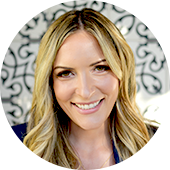During the COVID-19 pandemic, people spent a lot of time isolated and indoors, which helped foster an environment where some people now feel lonelier than ever. The result is a loss of social connectedness—the degree to which people feel the social connections and relationships in their lives to satisfy their wants and needs. When social…
Your Welcoa membership has expired.
Creativity Leads to Productivity
Time is our most valuable currency. And yet women, specifically, are taught to give theirs away or to magically expand theirs to fulfill the needs of others. I know this to be true because I’ve attempted to do both in equal measure for most of my life. It was only after 10 years of gender justice research and then writing a book that addressed the cultural discrepancy between men’s time (regarded generally as finite, like diamonds) and a woman’s time (widely perceived as infinite, like sand) that I started to shift my deeply entrenched habits and beliefs about time equality. Since Fair Play was published in 2019, I’ve become an outspoken champion of time choice for individuals and couples all over the world and have intentionally and successfully rebalanced my own domestic and work-life to include a fair share of time just for me, and without guilt or shame.
I was feeling quite empowered and liberated, really, by this seismic time shift in my own life when the pandemic hit. And just like that, the time-space continuum collapsed in all our laps.
I was early into the writing of my second book when we all had to close our doors and go inside, and I had the studied foresight to know that if I didn’t purposely create new time and space boundaries for uninterrupted, focused time to write, I wouldn’t find any and no one in my household would be handing any out for free. In an admirable effort to juggle jobs, partners, kids, pets, and their sanity all under one roof, a few of my friends stepped forward to draw clear lines of their own, sometimes with yellow caution tape and double-locked bedroom doors. I was tempted (very) to follow their lead and had to remind myself what I’d researched and learned: setting realistic boundaries, clearly communicating my needs, and prioritizing my time—again and again and again—is the antidote to burnout, resentment, and a lost sense of self. Said the other way around, exercising time choice is how we find ourselves again and infuse our lives with more connection, fulfillment, and meaning. And not just generally, I was learning, but specifically at work. Through my own observations and after conducting hundreds of interviews since the spring of 2020, I discovered that those people who make and take time for activities and pursuits outside of their work, their family, and other obligations are not only happier, but they articulated an increase in productivity, performance, workplace loyalty, and job fulfillment.
For example, my friend Michelle reported that her husband thrived during quarantine. “He renovated the front porch, started learning German on DuoLingo, and actually built a cigar-box ukulele in the basement. He became busier than ever at work, too – but he hasn’t struggled to carve out his ‘me’ time and feed the interests that make him happy.”
Not surprisingly, women struggle with making and taking time for themselves in a way that men like Michelle’s husband just don’t. Darby Saxbe, a leading clinical psychologist and neuroscientist who I’ve quoted extensively said, “Women just have less free time, period. Domestic and childcare time can be all-encompassing and boundary-less because you’re never fully done. Couple that with men statistically taking more ‘me’ time and not much is left for women.” And the research shows that when women ignore, suppress, or deny themselves time and space for personal expression, they are less productive and invested in their work.
So, what’s stopping us from reclaiming our time?
The reality is that as we head into 2022, it is still subversive for women to pursue or expand beyond their roles of partner, parent, and professional (and by professional, I mean any work for pay). And if you don’t have children or if you’re a single woman, you are expected to be available for your role at work, even during non-working time. This was pointed out to me by a thirty-something professional woman who attended one of my Zoom panels. She said, “At work, there are no time and space boundaries to create any just for me. Kids and family needs create a sense of urgency in the workplace to attend to other things. It’s hard to create that urgency if you don’t have kids.”I encouraged her to assert a time boundary at work to see if this shifted her ability to make more choices with her time outside of work. She was hesitant at first but eventually, she enrolled in a master mixology class, an interest that she’d put on the back-burner for years. A few months later, she happily reported, “This class finally gave me the permission I was looking for to work more regular hours. I worried that my manager and my colleagues might resent me for taking time for me but instead, they became interested in what I was learning and respected me for setting a boundary. I’ve inspired a few others on my team to follow suit.”
Can you similarly give yourself permission to expand your knowledge within your area of expertise, follow a new curiosity or develop a new skill? If you’re the employer in this story, can you create policies that invest in your employees’ unpaid creative acts outside of work? I call this form of creativity your ‘Unicorn Space,’ but like the mythical equine that inspired the name, it doesn’t exist until you give yourself—and others—the permission to reclaim, rediscover, and nurture it. While allowing time for creative expression may sound counter-productive, and while not easy to do in our busy world, it is not an optional add-on to your life, but essential for all people, regardless of your circumstances or financial privilege, and is a key component in the fight for gender equity in the workplace and in our homes.





